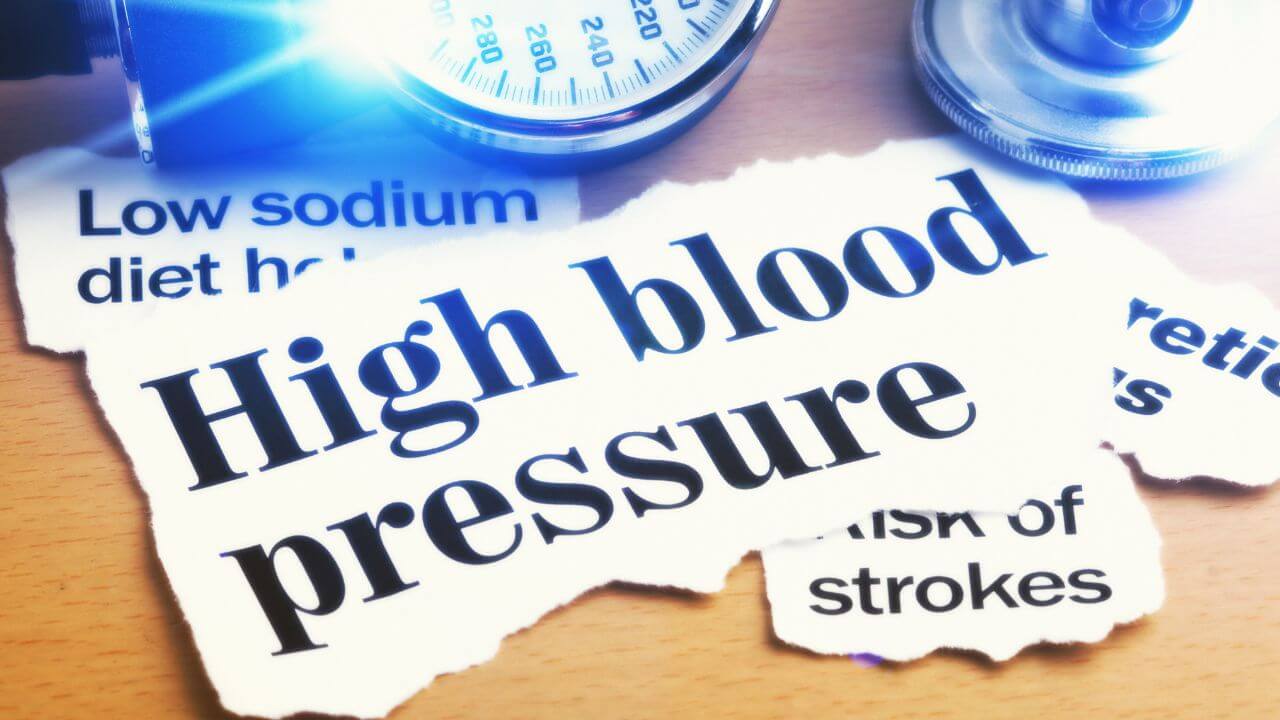Table of Contents
Can appetite suppressants cause high blood pressure?. You might be wondering how those little pills could affect something as critical as your blood pressure. Well, let’s break it down in simple terms. Appetite suppressants work by tricking your brain into thinking you’re not hungry. In turn, this may cause your body to go into overdrive, increasing your heart rate and blood pressure.
So, before you pop that next pill, it’s necessary to understand the potential risks involved. If you’re curious to learn more about the long-term effects of weight-reducing drugs on individuals with high blood pressure, check out this study. Do not forget, your health is the most important thing to consider.
Key Takeaways:
- Appetite suppressants may cause high blood pressure in some individuals.
- It is important to consult with a healthcare professional before using appetite suppressants.
- Monitoring blood pressure regularly while using appetite suppressants is important.
- Common side effects of appetite suppressants may include increased heart rate and elevated blood pressure.
- Using healthy lifestyle changes and proper diet may be preferable to using appetite suppressants for weight loss.

The Human Body: Appetite and Blood Pressure Mechanisms
If you’re wondering can appetite suppressants cause high blood pressure?, the answer is not always straightforward. Certain prescription weight loss drugs can have potential impacts on various bodily functions, including blood pressure regulation.
The Role of the Brain in Hunger and Satiety Signals
Blood plays a crucial role in signaling hunger and satiety to the brain. When we eat, our digestive system absorbs nutrients and releases hormones that communicate with the brain to regulate hunger levels. Appetite suppressants can alter these hormonal signals, potentially affecting blood pressure.
The Intricacy of Vascular Health and Pressure Dynamics
Vascular health is fundamental to maintaining optimal blood pressure levels. Blood vessels play a key role in regulating blood flow and pressure throughout the body. Disruptions in vascular function can lead to hypertension, a condition linked to various health risks.
It’s important to understand that while appetite suppressants may aid in weight loss efforts, their impact on blood pressure should be monitored closely. Appetite suppressants can sometimes cause fluctuations in blood pressure, especially in individuals with pre-existing cardiovascular issues.
Appetite Suppressants: A Double-Edged Sword
Even though appetite suppressants can be a handy tool in your weight loss journey, it’s important to be aware of potential side effects that come along with them. In this chapter, we will probe into how these supplements work and their possible connection to high blood pressure.
How Appetite Suppressants Work: A Simplified Overview
The mechanism of appetite suppressants is quite straightforward. These supplements work by signaling your brain to reduce feelings of hunger, making it easier for you to stick to your diet plan and consume fewer calories throughout the day. By reducing your overall food intake, you are more likely to lose weight over time.
Potential Side Effects: The Pressure Connection
Potential side effects of appetite suppressants, such as an increase in heart rate and potential stress on the cardiovascular system, may lead to high blood pressure in some individuals. It’s crucial to monitor your blood pressure regularly while taking these supplements and consult with your healthcare provider if you experience any concerning symptoms.
Another important factor to consider is that not all appetite suppressants are created equal. Some may have dangerous repercussions on your health, especially if you already have underlying conditions such as high blood pressure or heart problems. It’s vital to do thorough research and choose products that have been proven safe and effective.

Blood Pressure: The Silent Menace
Understanding the Norms and Extremes of Blood Pressure
After researching the question “can appetite suppressants cause high blood pressure”, it’s vital to comprehend the significance of maintaining healthy blood pressure levels. Blood pressure is the pressure of blood in your arteries, with the systolic pressure (when the heart beats) over the diastolic pressure (when the heart rests). The ideal blood pressure is typically around 120/80 mm Hg, with variations in this range considered normal.
The Consequences of Sustained High Blood Pressure
Understanding the dangers of high blood pressure is crucial. Sustained high blood pressure can lead to severe health issues such as heart disease, stroke, and kidney problems. Ignoring high blood pressure can be fatal, as it puts immense strain on your heart and blood vessels, increasing the risk of heart attacks and other cardiovascular complications.
It’s vital to regularly monitor your blood pressure, especially if you have risk factors such as obesity, a sedentary lifestyle, or a diet high in sodium. Making lifestyle changes such as increasing physical activity, reducing salt intake, and managing stress can help lower high blood pressure and reduce the associated risks.
The Evidence: Linking Appetite Suppressants to Blood Pressure Variations
Examining Scientific Studies and Trials
Many studies and trials have probed into the effects of appetite suppressants on blood pressure. For example, a study published in the Journal of Clinical Endocrinology and Metabolism found that certain appetite suppressants can indeed raise blood pressure levels. These findings were consistent with other research in the field, indicating a clear link between the use of appetite suppressants and increased blood pressure.
The Testimony of Medical Literature
On the other hand, medical literature also sheds light on the potential risks associated with appetite suppressants. Another study highlighted in the British Journal of Clinical Pharmacology revealed that long-term use of certain appetite suppressants can lead to elevated blood pressure levels. This evidence further solidifies the notion that appetite suppressants may contribute to high blood pressure.
Weighing the Scales: Risk Versus Benefit Analysis
Personal Health Assessments and Medication History
Your personal health assessments and medication history play a crucial role in determining the effects of appetite suppressants on your body. Do not forget, each person reacts differently to medication based on their unique health profile. To truly understand the potential risks of appetite suppressants causing high blood pressure, it’s vital to consult with your healthcare provider. They can provide insight into how these medications may interact with any existing conditions or medications you are currently taking.
Lifestyle Choices: Diet, Exercise, and Stress Management
To make an informed decision about the use of appetite suppressants and their impact on blood pressure, it’s important to evaluate your lifestyle choices. Your diet, level of physical activity, and stress management techniques can all influence your blood pressure levels. Incorporating a balanced diet rich in fruits, vegetables, and whole grains, along with regular exercise, can have a positive impact on your overall health. Stress management techniques such as yoga, meditation, or mindfulness practices can also contribute to a healthier lifestyle.
Analysis: Understanding the interconnected relationship between medication, lifestyle choices, and overall health is key to assessing the potential risks of appetite suppressants causing high blood pressure. By taking a holistic approach and considering all factors that influence your blood pressure levels, you can make informed decisions about your health and well-being.
Decision Paradigms: Should You Consider Appetite Suppressants?
Consulting with Healthcare Professionals
The decision to use appetite suppressants should not be taken lightly. Consulting with healthcare professionals is crucial to ensure your safety and well-being. They can provide personalized recommendations based on your medical history, lifestyle, and overall health. Additionally, they can monitor any potential side effects or interactions with other medications you may be taking.
Alternatives to Pharmacological Solutions
When considering appetite suppressants, it’s important to explore alternatives to pharmacological solutions. Sustainable weight loss can often be achieved through lifestyle changes such as improved diet and increased physical activity. Paradigms that focus on long-term health and well-being are key in making lasting changes.
Alternatives to Pharmacological Solutions can include working with a registered dietitian or nutritionist to develop a healthy eating plan, joining a support group for accountability and motivation, or incorporating mindfulness practices into your daily routine to enhance awareness of hunger and fullness cues.

Summing up
Upon reflecting on the question “can appetite suppressants cause high blood pressure”, it is important to consider the potential risks involved with using these products. While appetite suppressants may be effective in aiding weight loss, they can also have side effects that may impact your health, such as increasing the risk of high blood pressure.
It is crucial to consult with a healthcare professional before using any appetite suppressants, as they can provide guidance on the safest and most effective ways to manage your weight. Keep in mind, your health should always be the top priority, so be sure to take care and make informed decisions when it comes to using appetite suppressants.
FAQ
Q: Can appetite suppressants cause high blood pressure?
A: Yes, appetite suppressants can potentially cause high blood pressure. These medications work by altering the chemicals in your brain that control hunger, but this can also impact your heart rate and blood pressure.
Q: What are some common appetite suppressants that can cause high blood pressure?
A: Common appetite suppressants that may lead to high blood pressure include phentermine, diethylpropion, and phendimetrazine. These stimulant medications can increase heart rate and blood pressure.
Q: What are the risks of using appetite suppressants while having high blood pressure?
A: If you have high blood pressure, using appetite suppressants can further elevate your blood pressure, leading to serious health risks like heart attacks and strokes. It’s crucial to consult with a healthcare provider before taking any appetite suppressants.
Q: How can I safely lose weight without resorting to appetite suppressants?
A: You can achieve weight loss through a combination of healthy eating habits and regular physical activity. Focus on consuming whole foods, limiting processed foods, and staying active to reach your weight loss goals without relying on appetite suppressants.
Are there any natural alternatives to appetite suppressants that can help with weight loss?
A: Yes, you can explore natural ways to curb your appetite and support weight loss, such as drinking more water, eating high-fiber foods, and incorporating protein-rich meals into your diet. These natural methods can help you manage your weight without the potential risks of appetite suppressants.







